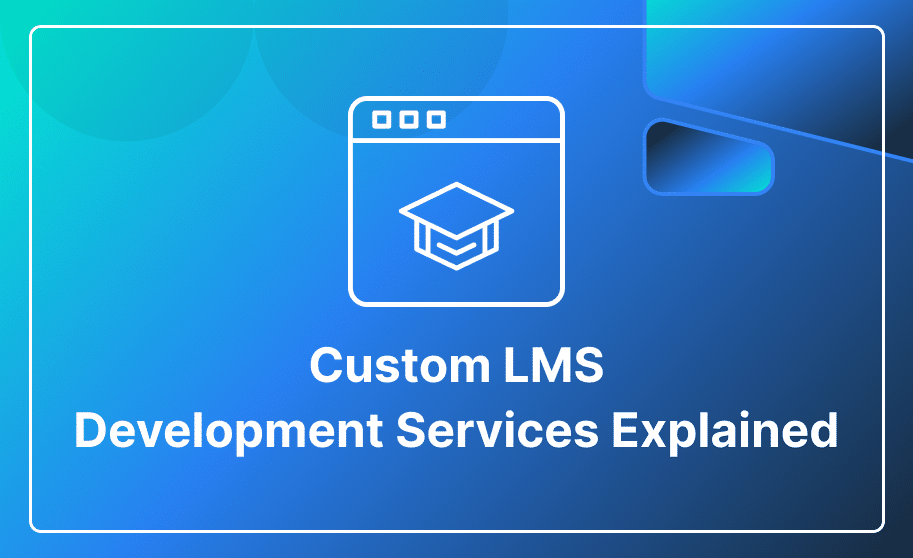Low-code is an approach in software development that empowers developers to create applications with minimal hand coding.
In the traditional coding environment, developers write lines of code to create software, whereas, in a low coding environment, developers employ the model-driven, visual language with a drag-and-drop graphical interface.
Low code replaces custom code with pre-built UI components, scripts, integrations, and visual workflow tools. It provides advanced capabilities for application lifecycle management, governance, security, and AI/ML, making it well-suited for the development of enterprise applications.
This blog serves as a comprehensive guide to low-code development, exploring its benefits, addressing potential limitations, highlighting best practices, discussing key components, and offering insights into future trends.
No-Code vs. Low-Code Platforms
Low-code and No-Code are software development approaches that aim to simplify and expedite the process, but they differ in coding expertise.
Low-code platforms are used by IT professionals with some coding skills to create custom applications, whereas no-code platforms allow users without any coding knowledge to create software solutions using visual interfaces and pre-built components.
Low code is suitable for more complex applications, while no code is particularly well-suited for simpler applications.
The Low Code Platform benefits
The several benefits of low code are discussed below:
- Cost Savings:
By enabling the creation of more applications in less time, low code reduces the overall development cost. Moreover, this approach also minimizes the need for additional developers, thereby reducing hiring expenses. So, low-code is not just a time saver, but also a budget-friendly tool.
- Increased Productivity:
Achieving higher productivity becomes seamless with low-code development. It enables companies to accomplish more in less time, leading to increased success in their projects. Low-code makes AI technology more accessible, allowing developers to unlock productivity. It speeds up development, cuts down implementation times, minimizes technical complexities, and effortlessly integrates AI for end-to-end process automation. In simpler terms, low code makes work smoother and faster.
- Accessibility:
Low code makes application development accessible to a broader audience, including IT professionals and those who are not tech experts, fostering collaboration between IT and non-technical teams.
- Scalability and Flexibility:
Low-code platforms are cloud-based, providing the flexibility to launch new apps and alter existing ones, whenever you want.
Starting on a low-code platform is easy and quick for users. Systems administrators play an important role in overseeing the entire ecosystem and apply for role-based access. Experienced developers have the ability to create custom code for applications within an Integrated Development Environment (IDE), enhancing the potential of low-code apps than no-code apps.
- Better Customer Experience:
In today’s competitive landscape, prioritizing customer satisfaction is crucial for the survival of business. Low-code development enables the seamless delivery of an unparalleled customer experience.
Utilize low-code development to quickly deliver customer-facing mobile apps, web portals, IoT-enabled apps, and many more – all in a single platform. The collaborative nature of low-code empowers teams to stay closely connected to their customers.
Leading Low-Code Software Development Platforms
Here are some leading low-code application development platforms:
- OutSystems
- Mendix
- Salesforce
- Oracle APEX
- AppSheet
- Quickbase
- Appian
- Microsoft Power Apps

Components of Low Code Platforms
Low-code development platforms have several key components that enable users to build, deploy, and manage applications with minimal hand-coding.
Visual Modelling:
Drag-and-drop functionality and user-friendly visual UI allow professional developers to increase their productivity and citizen developers to easily create diverse applications. With model-driven development, you can visualize how the app is working and launch it with just one click.
Reusable Components:
Create cross-platform apps using pre-configured modules, logic, templates, connectors, and much more. Skilled low-code developers can customize and extend the low-code components.
Collaboration Tools:
Collaborate seamlessly with built-in tools for feedback loops, revision tracking, user stories, messaging, and other features. The visual aspect of low code ensures the same development language for all team members.
Scalable and Flexible:
Rapidly deploy new apps and enhance existing ones to meet evolving customer demands and business requirements. A cloud-based low-code platform offers flexibility, continuous delivery support, and on-demand scalability at runtime and development stages.
Data Integration:
Securely integrate data and logic from various sources, systems, or services, including your essential legacy systems. Develop applications using pre-configured APIs and connectors, or enable your proficient developers to create custom integrations.
Application Lifecycle Management (ALM):
Low-code assists in every phase of the app development lifecycle by providing tools to simplify project management, requirements management, version control, testing, deployment, and additional tasks. Comprehensive low-code platforms integrate Agile development practices and DevOps tools.
Customized Low-Code App Development
With some time and expertise, the possibilities for custom software solutions become limitless. Building an application from scratch allows you to fine-tune every aspect to align with your business requirements. With the appropriate development team or technology partner, you have the flexibility to customize processes for everyone involved.
The custom approach has a longer development cycle as compared to no-code or low-code solutions. Nonetheless, using modern cloud technologies enables you to achieve robust functionality while keeping costs in check. If you have extra time, budget, or the necessary skills for a fully custom solution, you can significantly enhance your workflow.
A custom approach doesn’t always require writing everything from the ground up. You can begin with a no-code/low-code platform and, as your needs evolve, develop the more intricate components separately. This situation is often referred to as a hybrid solution.
Hybrid Solution enables quick development of the majority of an application through a low-code platform, while the intricate business processes can be crafted using custom code.
Best Practices for Secure Low-Code Application Development
- Authentication and Authorization:
Ensure robust authentication and authorization mechanisms so only authorized users can have access to specific functionalities and data.
- Data Encryption:
Encrypt sensitive data. It will protect information from unauthorized access, especially when it’s being transferred between different systems.
- Secure API Integration:
If your low-code application platforms integrate with external APIs or services, ensure that these connections are secure. Use secure protocols (HTTPS) and implement proper authentication mechanisms for API endpoints.
- Regular Security Testing:
Conduct regular security assessments, including penetration testing and code reviews. Identify and address vulnerabilities early in the development process to minimize the risk of security breaches.

Importance of Integrating Low Code Applications
Integrating low-code applications with existing systems and other software solutions is crucial for several reasons:
- Seamless Workflow:
Integration allows low-code applications to communicate and share data with existing systems.
- Maximizing Existing Investment:
Integrating low-code applications enables organizations with substantial investments to maximize the value of their existing technology infrastructure without the need for a complete transformation.
- Cost-Effective:
Integrating with existing systems can be more cost-effective than developing entirely new solutions.
- Enhanced Productivity:
Integration allows users to access information from different systems within a single interface. This access improves user productivity as they don’t have to switch between multiple applications.
- Holistic Decision-Making:
Integrating low-code applications with existing systems provides a comprehensive view of business data. This holistic perspective provides decision-makers with a complete understanding of the organization’s operations.
- Enhanced Customer Experience:
By connecting customer-facing low-code applications with back-end systems, businesses can provide a unified experience and respond more effectively to customer needs.
Challenges and Limitations of Low-Code Development:
While low-code development offers significant advantages, it is essential to be aware of potential challenges and limitations, including:
- Complexity in handling unique use cases:
Low-code platforms may struggle to accommodate highly specialized or unique use cases that require intricate and custom solutions.
- Scalability Concerns:
Some low-code platforms may face limitations in scalability, especially when dealing with extensive or rapidly growing applications.
- Security and Compliance Risk:
Rapid development through low-code platforms can sometimes lead to oversight of security measures.
- Dependency on Platform Vendor:
Specific low-code platforms may become dependent on vendors for updates, support, and compatibility.
- Limited Control Over Infrastructure:
Organizations using low-code platforms might have limited control over the underlying infrastructure, which is a concern for businesses with specific hosting or infrastructure requirements.
ROI and Cost Savings
When measuring the return on investment (ROI) of low-code platforms, businesses should consider both quantitative and qualitative metrics. Quantitative data may encompass factors such as cost savings, customer satisfaction, and accelerated time-to-market. On the Qualitative data side, improvements in employee morale and increased adaptability to meet evolving customer demands are notable indicators.
Measuring both quantitative and qualitative data allows businesses to gain a comprehensive insight into the positive returns offered by low-code platforms. Simultaneously, businesses must guarantee the correct design and implementation of their low-code platforms to ensure optimal ROI.
Future of Low Code
From departmental levels to entire enterprises, organizations across the globe are using low code to transform how they address business challenges. Propel your digital strategies by swiftly building and innovating solutions that deliver unparalleled business value.
Low code is the future of application development, and its proven track underscores its effectiveness.
Future Trends
The future of application development via low-code platforms seems promising. The emerging trends that shape the future of low-code application development are:
- Emergence of Citizen Developers:
A significant trend in the low-code arena is the rise of citizen developers. These individuals lack traditional coding backgrounds but contribute valuable knowledge and expertise in their respective fields.
- AI and Machine Learning Integration:
Low-code platforms are incorporating AI-driven features like predictive analytics, natural language processing, and automated testing. AI and machine learning integration in low-code platforms automates routine tasks and decision-making processes, improving overall efficiency.
- Advancement of Industry-Specific Solutions:
Low-code platforms are progressively meeting the needs of specific industries by providing pre-built templates, modules, and workflows tailored to the unique requirements of each sector. This trend is set for further growth as low-code platforms become increasingly specialized for industries such as healthcare, finance, manufacturing, and others.
Resources and Training Opportunities
Numerous resources and training options are available for individuals and teams interested in low-code development, like online courses, community forums, vendor documentation, webinars and workshops, YouTube tutorials, articles and blogs, books, and certifications.
Choosing the Best Low-Code Development Platform for the project
- Identify the specific needs of your project, including features, customization capabilities, scalability, and integration requirements.
- Evaluate the user interface of the platform.
- Consider the platform’s compatibility with existing systems and its ability to integrate with other tools and services.
- Understand the pricing model of the platform, considering factors like licensing fees, additional costs, and the overall return on investment.
- Utilized free trials or demos offered by the platform to test its features and functionality.

Conclusion
The evolution of low-code development represents a significant shift in the way applications are built and deployed. The low-code approach empowers both professional and citizen developers to create robust applications with minimal hand-coding, fostering collaboration across diverse skill sets.
If you’re ready to try low-code development. Hashlogics is your go-to platform to get started.
Certainly, here is a list of commonly asked questions about low-code development:
Are low code developers in demand?
Low-code development is an emerging technology that enables businesses to rapidly create software applications through visual tools and modeling, instead of writing code. This expansion has increased the demand for skilled low-code developers, who are capable of customizing and overseeing low-code applications efficiently.
How much does low code development cost?
The cost of low-code development varies. It costs between $50 to $200/ month. The cost depends on various factors, such as user subscriptions, licensing fees, infrastructure and hosting, adding advanced features, and consultancy services.
Will Low code replace coding?
Low-code development is unlikely to replace traditional coding entirely. It streamlines development, but intricate or specialized applications may still require traditional coding for precise customization and optimization.
Will AI take over coding?
AI is unlikely to completely take over coding. While AI helps in automating certain aspects of coding, human creativity, problem-solving, and domain expertise remain essential for complex and innovative software development.
Which companies or organizations commonly use low code development?
Some notable companies or organizations are finance, retail, and non-profit.

What Role Does User Experience (UX) Play in Low Code Development?
User experience (UX) plays an important role in low code development. Key aspects include:
- A well-designed UX ensures that applications are accessible to users.
- UX accelerates the development process by providing intuitive tools.
- It facilitates collaboration between technical and non-technical stakeholders.














